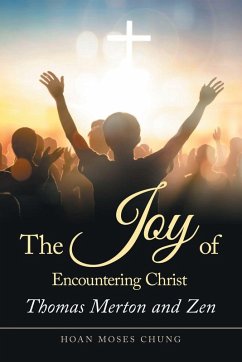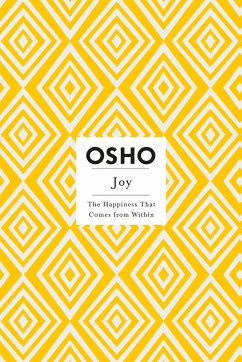
The Joy of Encountering Christ
Thomas Merton and Zen

PAYBACK Punkte
12 °P sammeln!
The Joy of Encountering Christ Thomas Merton and Zen is based on Merton's pioneering work of integrating Christian spirituality with Eastern religions, especially Zen Buddhism. The author espouses perennial philosophy, which says that human beings have an identical dynamism of the spirit oriented to God. Christ is equivalent to Atman in Advaita Vedanta and the Buddha-nature in Zen. We don't have an individual life apart from Christ; our true self is Christ who lives within us. Merton's spirituality is summarized, using the thirteenth century Buddhist philosopher Dogen's dictum: "To know Christ...
The Joy of Encountering Christ Thomas Merton and Zen is based on Merton's pioneering work of integrating Christian spirituality with Eastern religions, especially Zen Buddhism. The author espouses perennial philosophy, which says that human beings have an identical dynamism of the spirit oriented to God. Christ is equivalent to Atman in Advaita Vedanta and the Buddha-nature in Zen. We don't have an individual life apart from Christ; our true self is Christ who lives within us. Merton's spirituality is summarized, using the thirteenth century Buddhist philosopher Dogen's dictum: "To know Christ is to know true self. To know the true self is to know the false self. To know the false self is to cast off the body and mind by means of contemplation." Merton single-handedly lifted up Christian spirituality and made "contemplation" a household word, by firmly establishing that Zen provides the epistemological and structural impetus for directly experiencing God. Contemplation is the process of manifesting the hidden wholeness- body, mind, and spirit, by emptying the ego-self so that Christ takes ownership of our interior selves. Without the wisdom and insights from Asian religious traditions, the Christian proclamation fails to convey its full meaning and remains divided between God and man, heaven and earth, and mind and body.













